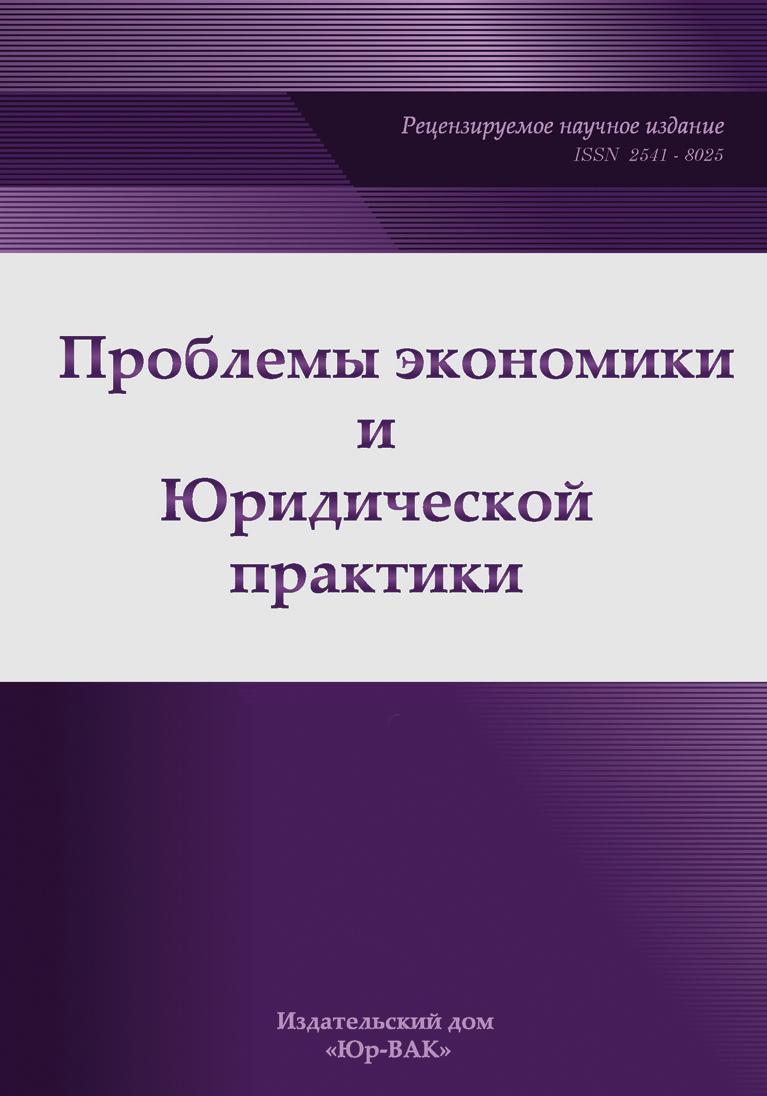European State Policy in Support of the Sustainable Development of the Arctic: Lessons for Russia
- 作者: Moreva E.L.1, Bekulova S.R.1
-
隶属关系:
- Financial University under the Government of the Russian Federation
- 期: 卷 18, 编号 5 (2022)
- 页面: 200-205
- 栏目: Articles
- URL: https://journals.eco-vector.com/2541-8025/article/view/546091
- ID: 546091
如何引用文章
详细
Models of the state policy of countries aimed at supporting the sustainable development of the Arctic and subarctic phenomena are formed under a significant complex of complex complexes of natural, cumulative and international factors, which requires the expected implementation. In this regard, it is important to study foreign experience in identifying the best practices. The purpose of the work is to analyze the models of state policy to support the sustainable development of the Arctic and subarctic countries of Europe and to search for opportunities to use their experience in Russia. The object of the study is the Arctic territories of European countries. The subject of the study is the mechanisms for managing the development of the Arctic territories of European countries. The methodological basis of this study is the fundamentals of systemic and comparative analysis, methods of synthesis, induction and deduction. The authors analyzed the models of state support for the sustainable development of the Arctic and subarctic territories of European countries. It shows how the place, role and importance of the Arctic has changed in the national strategies of European states and the European Union. In the course of the work, the features of the status of the European Union in the Arctic agenda were revealed. As a result of the analysis, models and mechanisms of state support for the development of the Arctic in European countries have been identified, which can be used in Russia.
作者简介
Evgeniya Moreva
Financial University under the Government of the Russian Federation
Email: elmoreva@fa.ru
Cand. Sci. (Econ.), Associate Professor; Deputy Director of the Institute of Financial and Industrial Policy Moscow, Russian Federation
Suzanna Bekulova
Financial University under the Government of the Russian Federation
Email: srbekulova@fa.ru
Junior Researcher at the Institute of Financial and Industrial Policy Moscow, Russian Federation
参考
- Aliyev. H. EU Arctic Policy and Prospects for Relations with Russia. -URL: http://library.fes.de/pdf-files/bueros/moskau/17237.pdf (accessed 30.04.2022). (In Russ.)
- Dzyuban V.V. Arctic policy of Norway in the XXI study // Archon. 2019. No. 6. P. 4-9. (In Russ.)
- Eremina N. V. The Arctic policy combines: tasks and problems // Oikumena. Regional studies. 2019. No. 4. P. 30-39. doi: 10.24866/1998-6785/2019-4/30-39 (In Russ.)
- Zhuravel V.P. Arctic Strategy and Security Issues // Scientific and Analytical Bulletin of the IE RAS. 2021. №5. pp. 23-30. doi: 10.15211/vestnikieran520212330 (In Russ.)
- Ignatieva V., Kiushkina V., Samsonov R., Ishmuratova M., Rodichkin I. et al. Arctic strategies: energy, security, ecology and climate. [Experience report]. Skolkovo. Energy Center. 2020 (hal-02938923). 283 p. (In Russ.)
- Kurpas P.A. Review of Finland's Arctic policy in the 2010s // Russian Arctic. 2021. №1. pp. 85-91. (In Russ.)
- Chuffart R., Raspotnik A., Stępień A. Our common arctic? A more sustainable EU-arctic nexus in light of the European green deal // The Polar Journal. 2021. № 11. P. 284-302. doi: 10.1080/2154896X.2021.1978757
- Crépin A.S., Karcher M., Gascard J.C. Arctic Climate Change, Economy and Society (ACCESS): Integrated perspectives // Ambio. 2017. № 46. P. 341-354. doi: 10.1007/s13280-017-0953-3
- Degai T., Petrov A. Rethinking Arctic sustainable development agenda through indigenizing UN sustainable development goals // International Journal of Sustainable Development & World Ecology. 2021. № 28. P. 518-523. doi: 10.1080/13504509.2020.1868608
- Degtyaryova E., Leyman G. The Role of Green Economy in Strategic Socio-Economic Development of the Arctic Zone. 2020. IOP Conference Series: Earth and Environmental Science. URL: https://iopscience.iop.org/article/10.1088/1755-1315/539/1/012074/pdf (дата обращения: 21.10.2022).
- Raspotnik A., Østhagen A. The European Union’s Geopolitical Quest for Northern Space. The Arctic Institute, 8 October, URL: https://www.thearcticinstitute.org/european-union-geopolitical-quest-northern-space/ (дата обращения: 21.10.2022).
- Saxena A. The Return of Great Power Competition in the Arctic. The Arctic Institute. 22 October 2020, URL: https://www.thearcticinstitute.org/return-great-power-competition-arctic (дата обращения: 21.10.2022).
- Sharp G. A Brief History of Lines in the Arctic. The Arctic Institute, 20 March 2018. URL: https://www.thearcticinstitute.org/brief-history-lines-arctic/ (дата обращения: 21.10.2022).
- Xue L., Weng L., Yu H. Addressing policy challenges in implementing SDGs through an adaptive governance approach // Sustainable Development. 2018. № 26. P. 150-158.
- Zaikov K., Kondratov N., Kudryashova E., Lipina S., Chistobaev A. Scenarios for the development of the Arctic region (2020-2035) // Arctic and North. 2019. № 35. P. 5-24. doi: 10.17238/issn2221-2698.2019.35.5
补充文件








